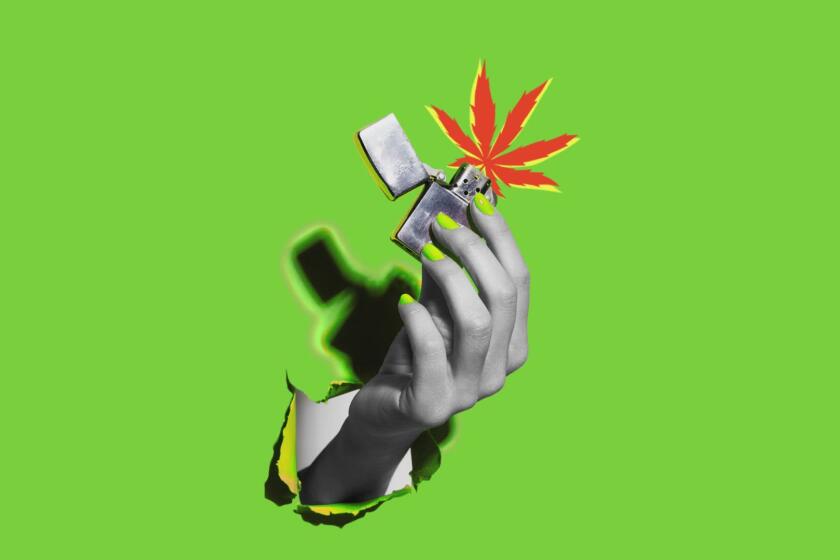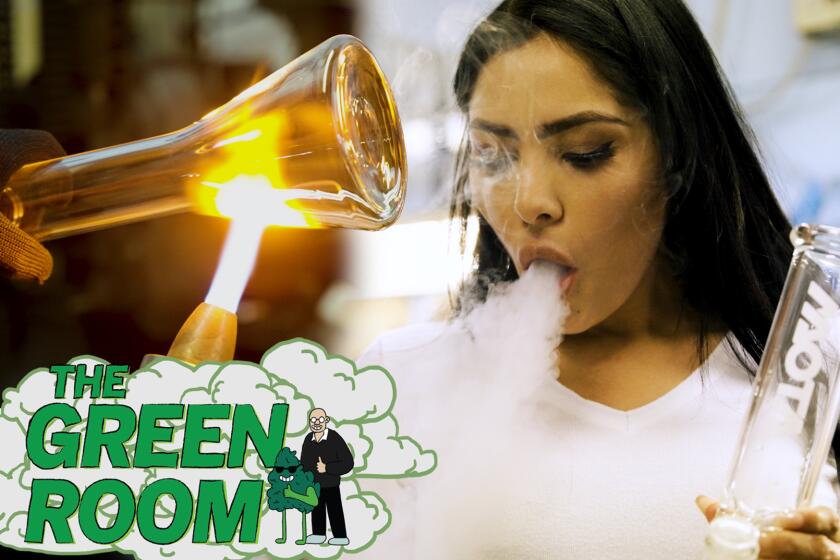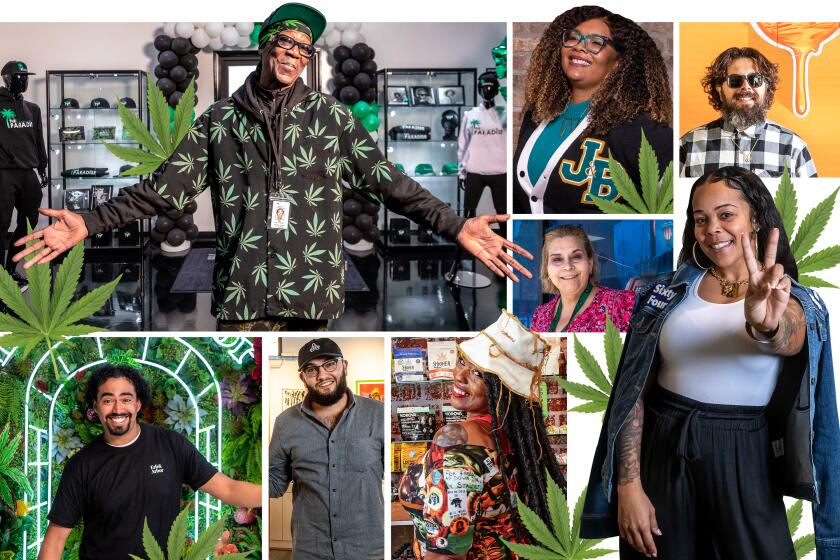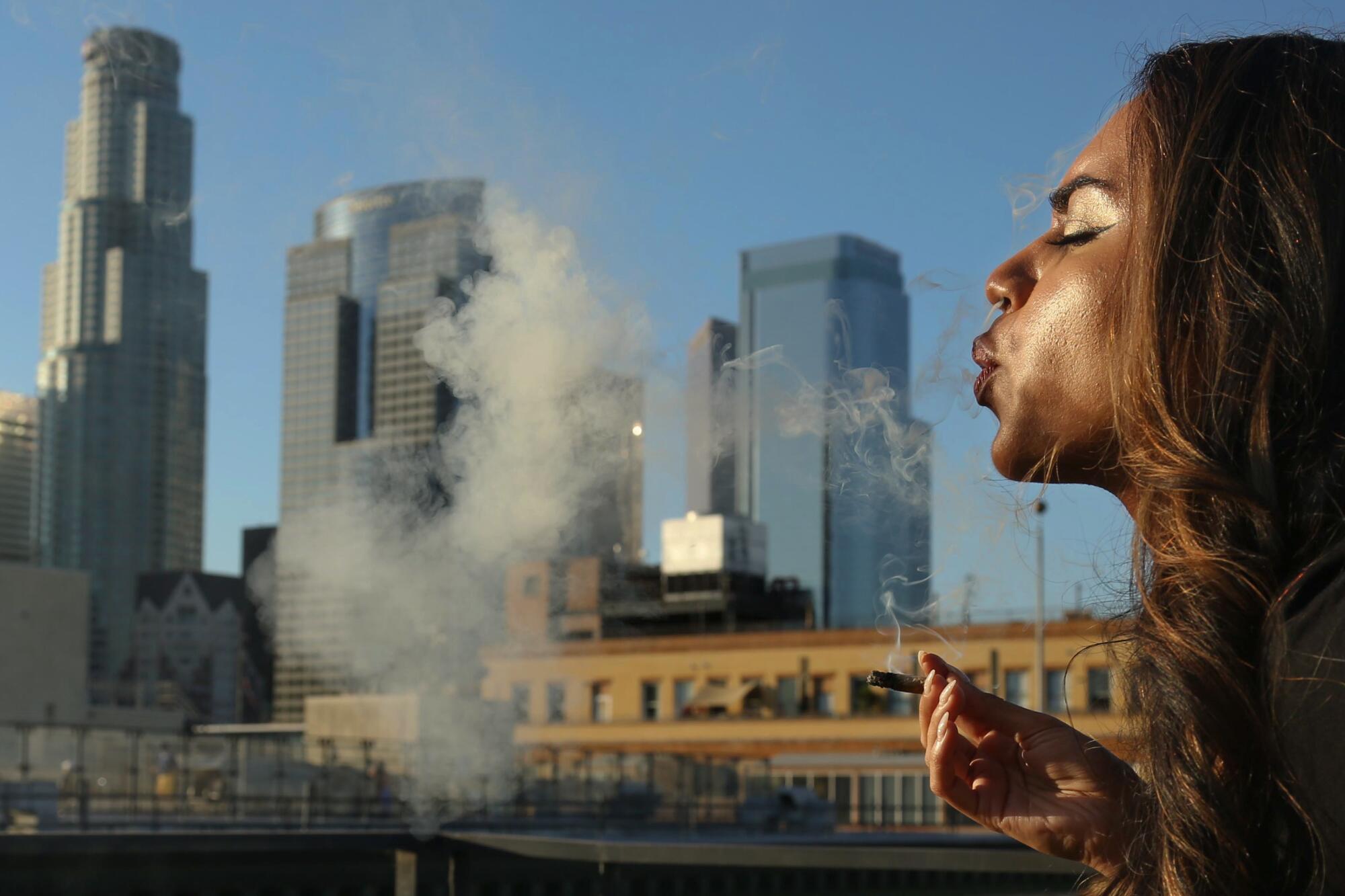
- Share via
It’s a late summer evening on the 10th floor of a nondescript office building in downtown L.A. The air is thick with weed smoke, and the music is pumping. A woman wearing a cropped T-shirt, a pair of high-rise, flare-legged trousers and a wide Cheshire cat grin stepped away from the dab bar, exhales a lungful of vapor and makes her way through the crowd toward the DJ who hands her a microphone.
“Welcome to Dabby Hour IRL!” says Maha Haq to the 50 or so pot people in the room. Some respond with hoots, others clap their encouragement. A few pause mid-hit and silently tilt their pipes or vaporizers in her direction in acknowledgment.
For the record:
5:12 p.m. Sept. 18, 2023A photo caption accompanying an earlier version of this story misidentified one of the party attendees. Her name is Wendy Zeng, not Wendy Chang.
They’re gathered in the downtown headquarters of the Source cannabis brand to celebrate the one-year anniversary of a segment called “Dabby Hour” on Haq’s HighMaha Twitch channel. For about 2½ hours four nights a week for the last 365 days, Haq has livestreamed a hodgepodge of cannabis-related content — almost always punctuated with enthusiastic hits from a dab rig (dabs are small amounts of cannabis extract) near her right elbow — to 1,200 followers. (Just before each live session, she pops up on Instagram Live to let her 11,100 followers on that social media platform know to tune in to Twitch.)
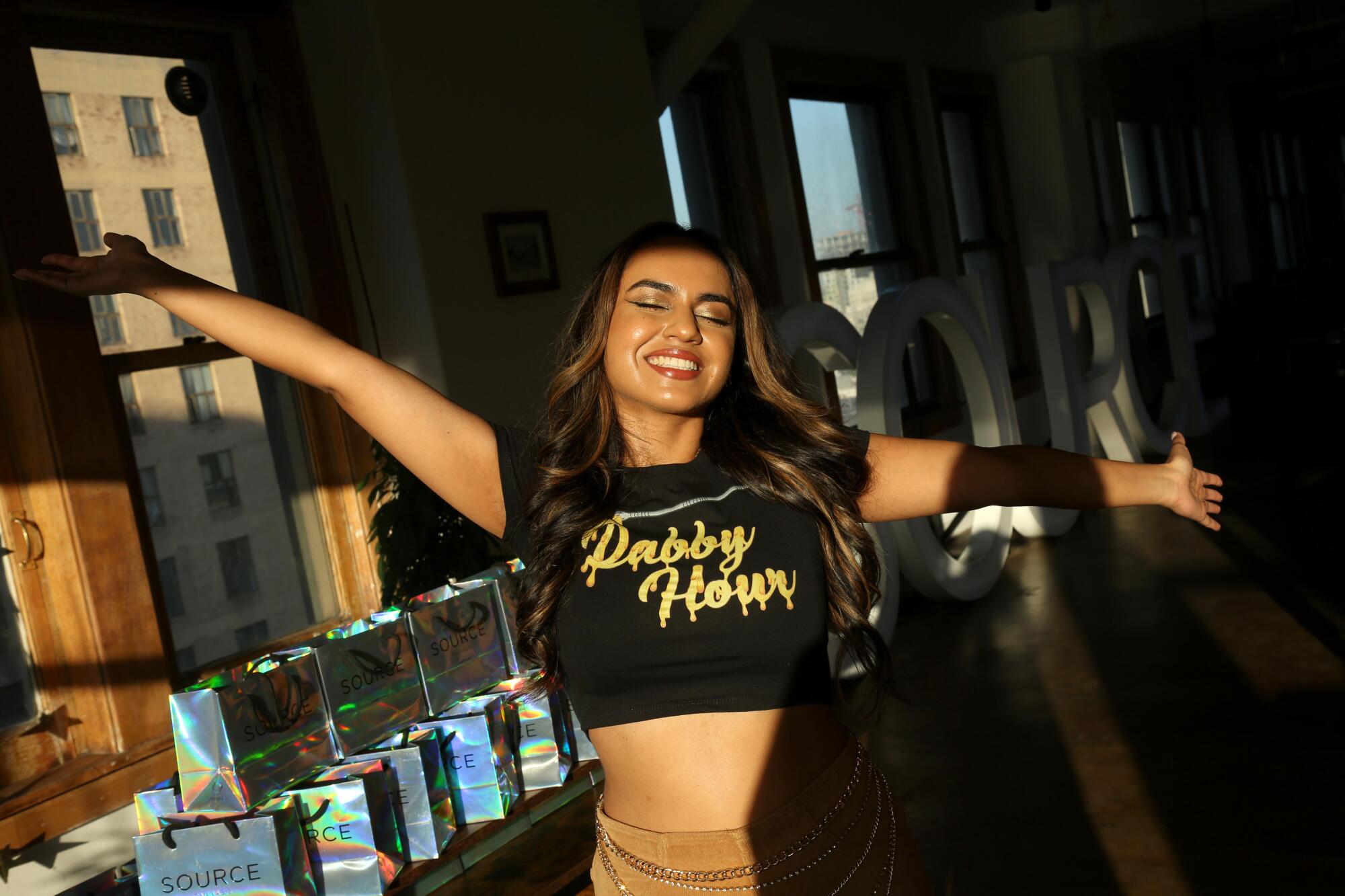
The dozens of people in her midst also are at the party because at some point since Haq founded a first-of-its-kind cannabis-education student group called Cannaclub at UCLA in 2018, they’ve benefited from her uncanny ability to connect — and connect with — members of the SoCal cannabis community.
Like streaking comets across the inky black sky, they’ve chanced into the gravitational pull of a brightly burning star and found themselves locked in her orbit. The 29-year-old Haq and her circle of movers, shakers and revelers are among the few bright spots in Southern California’s wobbly weed world, and their presence offers a glimmer of hope that there’s light at the end of tunnel.
“She’s a plug,” says artist and partygoer Lisette Barajas, known on Instagram as Mehndi420, referring to how Haq has helped folks make connections in the SoCal cannabis space. Between hits from a glass bong she decorated with her own artwork, she adds: “[Maha] connects anyone and everyone into whatever she’s doing — whatever business she’s engaging in. ... She’s connected me to all kinds of events, including going to Coachella to do my art.”
Three weeks earlier, the pair were posted up at a Highland Park backyard sesh organized by the Swami Select cannabis brand, with the artist delicately daubing marijuana-leaf designs in henna on the back of Haq’s hands and up to her elbows.
What happens when your dog eats your weed? Where are the boomer stoners at? Here are some of your burning weed questions asked — and answered.
“We met when she was studying sociology at UCLA,” Barajas says. “She does so much networking and she knows so many different brands. As a person with a social work background, I’m all about best practices, and she is too. She not only seeks out women but also [products] that are sustainably sourced. … Her reviews of things on her livestream and on her Instagram really matter, not only because of her educational background but because of the big influence she has.”
At the mention of the i-word — influencer, in this case — Haq seems to almost flinch. On more than one occasion, when introduced as a cannabis influencer, she’ll smile her wide Cheshire cat smile and gently interject: “I don’t consider myself an influencer. I’m a commentator. I try things, I go places and I comment on them and talk about them [on my livestream]. But I’m not sponsored or paid by any of the brands I talk about.”
It’s an important distinction, Haq says, because of why she entered the social media space in the first place. “For the past 11 years,” she says, “I’ve been busy building up other people and helping them find their brand identity, build their businesses. Now it’s time for me. That’s what I’m trying to do with Dabby Hour. It’s time to brand myself.”
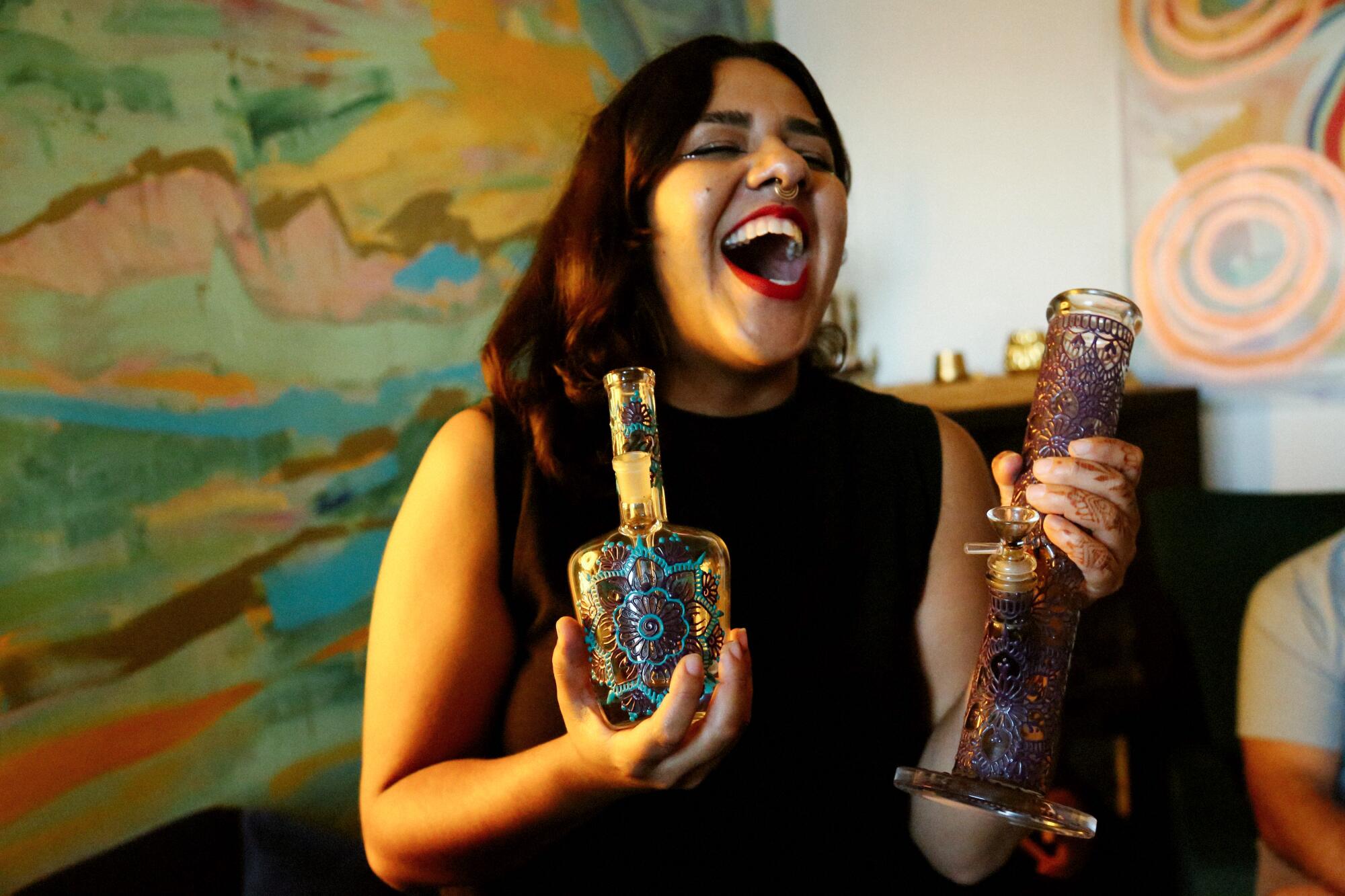
What’s in a name?
To fully understand Haq’s cannabis career arc, one needs to start at the beginning, which was officially 2012 — the year she landed her first cannabis job — but if you’re a believer that your name can chart your destiny, then the seeds were planted much earlier than that.
Born to an Indian father (who isn’t part of her life, she says) and a Pakistani mother, she spent her early childhood in Houston before moving to the Greater L.A. area (“Palmdale at first,” she says, “and later all over the Antelope Valley and San Gabriel Valley”). Haq says that her last name, which is pronounced “huck” (as in Huck Finn), translates from Arabic to mean truth. But she gives her mom kudos for choosing what turned out to be a wholly appropriate first name.
“Maha has [different] definitions in different languages,” Haq says as she rattled off the translations from Hindi, Urdu, Farsi and modern standard Arabic. “But she chose the old Arabic feminized version of the word that means ‘counselor or advisor.’ Which is kind of crazy because that’s what I do.”
Her mother, a clinical researcher, would play a more direct — and formative — role in her daughter’s cannabis career 17 years later. That’s when she caught her only child smoking weed.
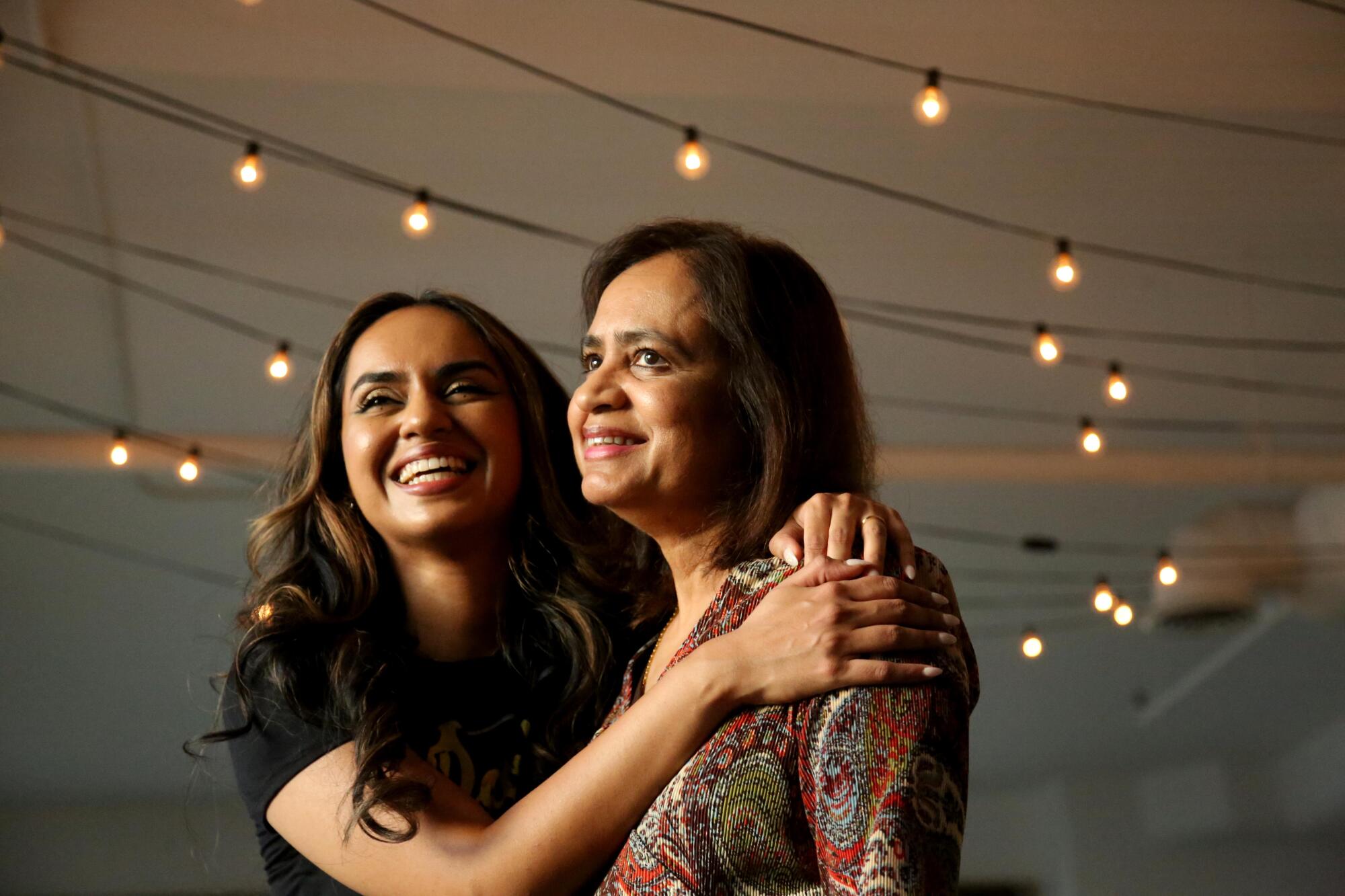
“She didn’t punish me though,” Haq recalls. “Instead, because she was a scientist, she wanted to know why what I was doing was OK and made me write up a report. So I wrote this whole report for her, and she was like, ‘Oh, you did homework!’ because at the time I was a high school dropout who had been avoiding homework.”
Haq says her report was so convincing that her mother invited her to present it again — this time to her colleagues and their patients at the City of Hope cancer center. The next year, four days after her 18th birthday, Haq started a budtending job at a dispensary. Her career in cannabis had begun.
Eventually, with high school firmly in the rearview mirror (“I didn’t go back,” Haq says. “I kind of like tested out”), she headed to college — first to Pasadena City College, then UCLA and finally the University of Maryland School of Pharmacy, where in 2021 she earned a master’s of science in pharmacological sciences with a focus on medical cannabis sciences and therapeutics.
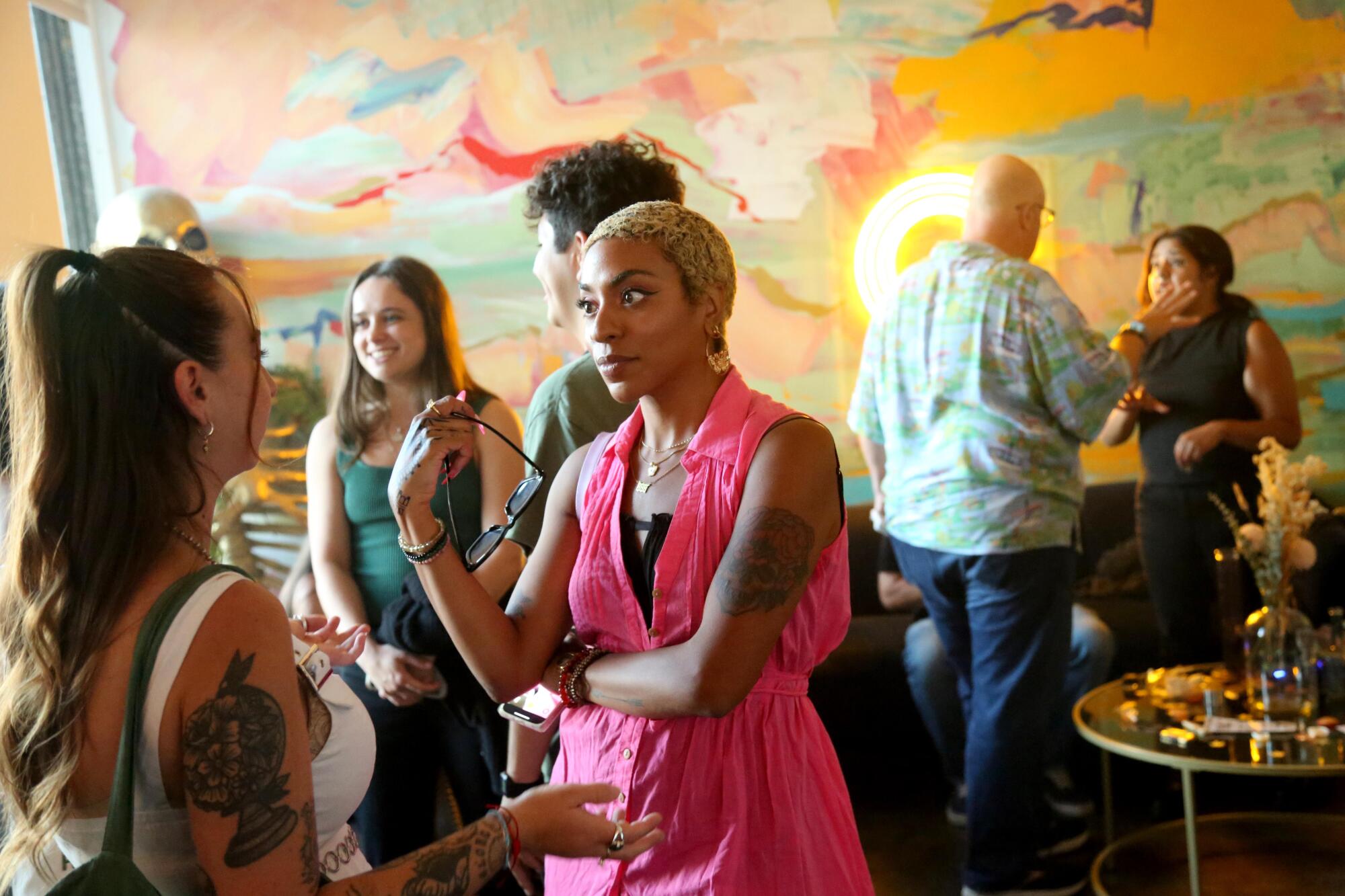
Founding Cannaclub
It was at UCLA, where she earned a bachelor’s degree in sociology with a minor in mathematics, that Haq’s considerable skill of connecting members of the cannabis crowd — industry, community, teachers, thought leaders and government officials among them — began to manifest after she convinced the school to let her start a cannabis-focused student group called Cannaclub.
“I’d been lobbying them for years to let us start a student organization focusing on cannabis education and destigmatization,” she explains. “But it wasn’t until 2018 [after adult use was legal] that they finally said yes.”
Soon Haq was wrangling guests from on and off campus to educate (and, in the case of brands seeking insight on cannabis-consumer preferences, be educated by) college students curious about the cannabis space.
California cannabis brand owners wrote a beginner’s guide to weed and translated it into 11 Asian languages, including Mandarin, Japanese, Korean, Urdu and Tagalog.
“We had [then-executive director of L.A.’s Department of Cannabis Regulation] Cat Packer teach one of our classes,” Haq says. “We had a UCLA botany professor speak about the history and botany of the plant and we had someone from [what used to known as] the UCLA Cannabis Research Initiative get involved.”
Today, there are Cannaclub chapters at 31 colleges and universities in 14 states with some 7,000 student members, but it was the founding of just the third chapter — in 2019 — that may have cemented Haq’s legacy as a cannabis community connector. Inspired by her efforts at UCLA, Anette Recinos, a student at archrival USC, sought out Haq’s guidance.
“I helped her start her [chapter], so I was honored by that,” Haq says. “We like to say weed brought us together.”
Four years later, Recinos is still orbiting planet Maha, as evidenced by her presence at Haq’s one-year Twitchaversary in downtown L.A., along with Cannaclubbers repping UCLA, UC Berkeley, UC San Diego and San Diego State University.
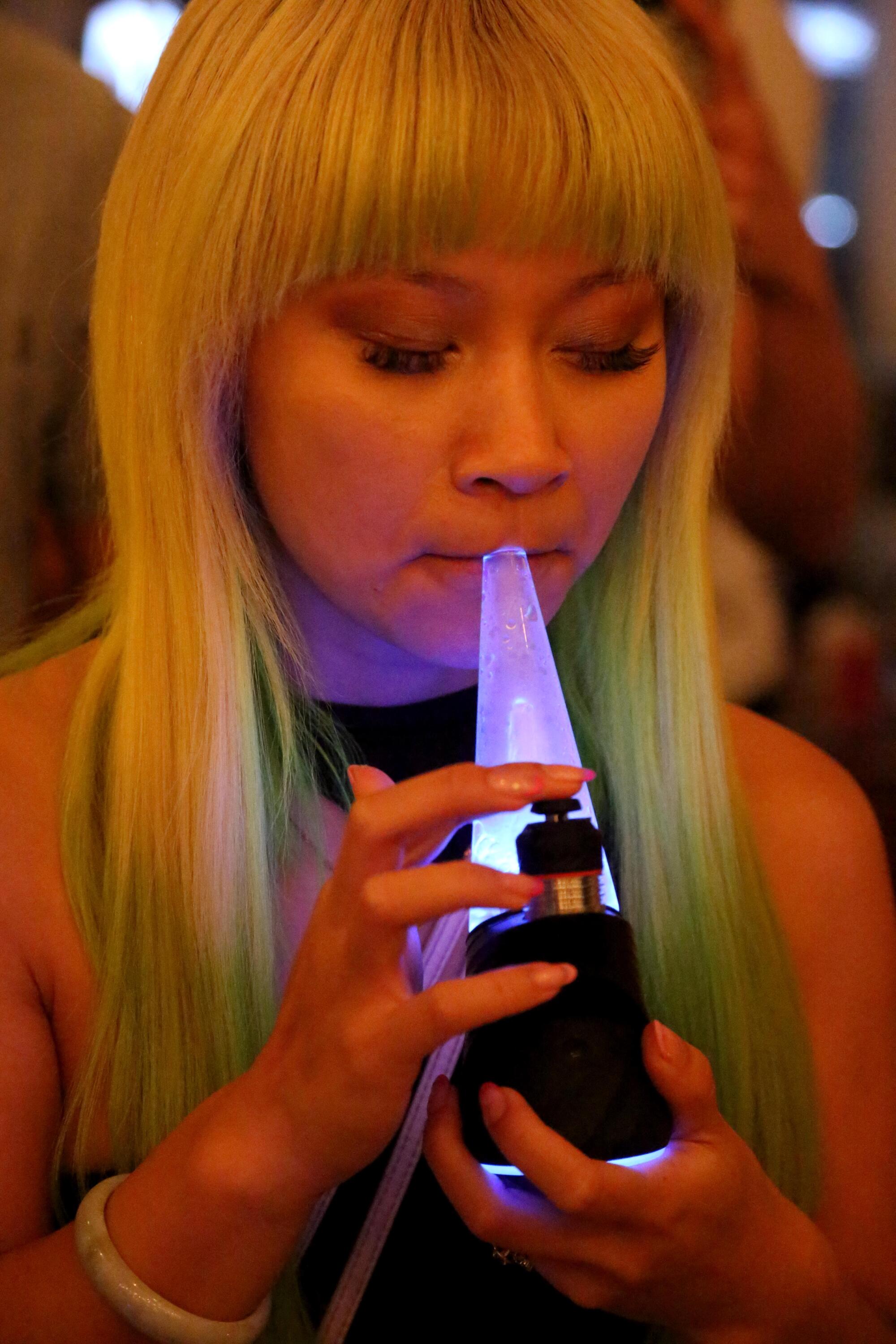
“Cannaclub is definitely my baby,” Haq says. “And a baby that is shared with this huge community of students. It was never intended to be a revenue-generating thing, but it did result in a lot of project opportunities.”
Those project opportunities — some full-time jobs, some one-off consulting gigs — over the course of the last decade cover an impressive swath of the cannabis industry. Haq has consulted on consumption lounge projects in West Hollywood, Chicago and Las Vegas, worked with a Van Nuys testing lab, helped launch high-tech hookahs and assisted big-name, multistate operators trying to get a foothold in the industry.
Those opportunities have grown and shrunk over the years, mirroring the volatile SoCal cannabis market’s boom and bust cycles. Full-time jobs that seemed safe evaporated practically overnight because of consolidations, lack of funding or changes in direction. Along the way, Haq has shared her ups and downs in the business with her cannabis compatriots, which makes her seem all the more authentic and relatable.
At the moment, her main gigs are teaching online science classes for Oakland-based Oaksterdam University and working, through Oaksterdam, as a head coach for social equity applicants trying to navigate L.A.’s Department of Cannabis Regulation. In addition, she has served as the director of education for the L.A. chapter of the National Organization for the Reform of Marijuana Laws since 2021.
Los Angeles-based MOTA Glass uses a network of local artisans to craft ‘made in the U.S.A.’ water pipes.
“In the cannabis world of fakes, wannabes and snakes, Maha stands out and attracts like-minded professionals and advocates,” says Susie Plascencia, co-founder of Los Angeles-based MOTA Glass. “Being a real player in the cannabis industry comes with the good, the bad and the ugly, and Maha, like so many of us, is no stranger to that. Despite setbacks, she holds her head high, and it’s that resilience that others gravitate toward, especially women of color who tend to be exploited and undervalued the most in this industry.”
Plascencia is among the cannabis industry insiders on hand to fete Haq in late July. A few feet away, also celebrating the occasion, is Bruna Perez, a cannabis advocate and manager of the Emjay dispensary on Fairfax who has been in Haq’s orbit since the two met at a cannabis trade show in Palm Springs. “It’s nice to have someone who understands collaboration,” Perez says. “Corporate cannabis tends to separate the industry from the community — they don’t understand that the community drives the industry. Maha is someone who unites both of those sides.”
A few feet away from Perez, Vanessa Salazar, a manager for the L.A.-based Stiiizy brand, holds a joint in one hand. With the other, she makes a wide sweeping gesture across the room full of revelers. “How many of us are brown women?” she asks. “We’re building the industry. We’re the managers, the ambassadors.”
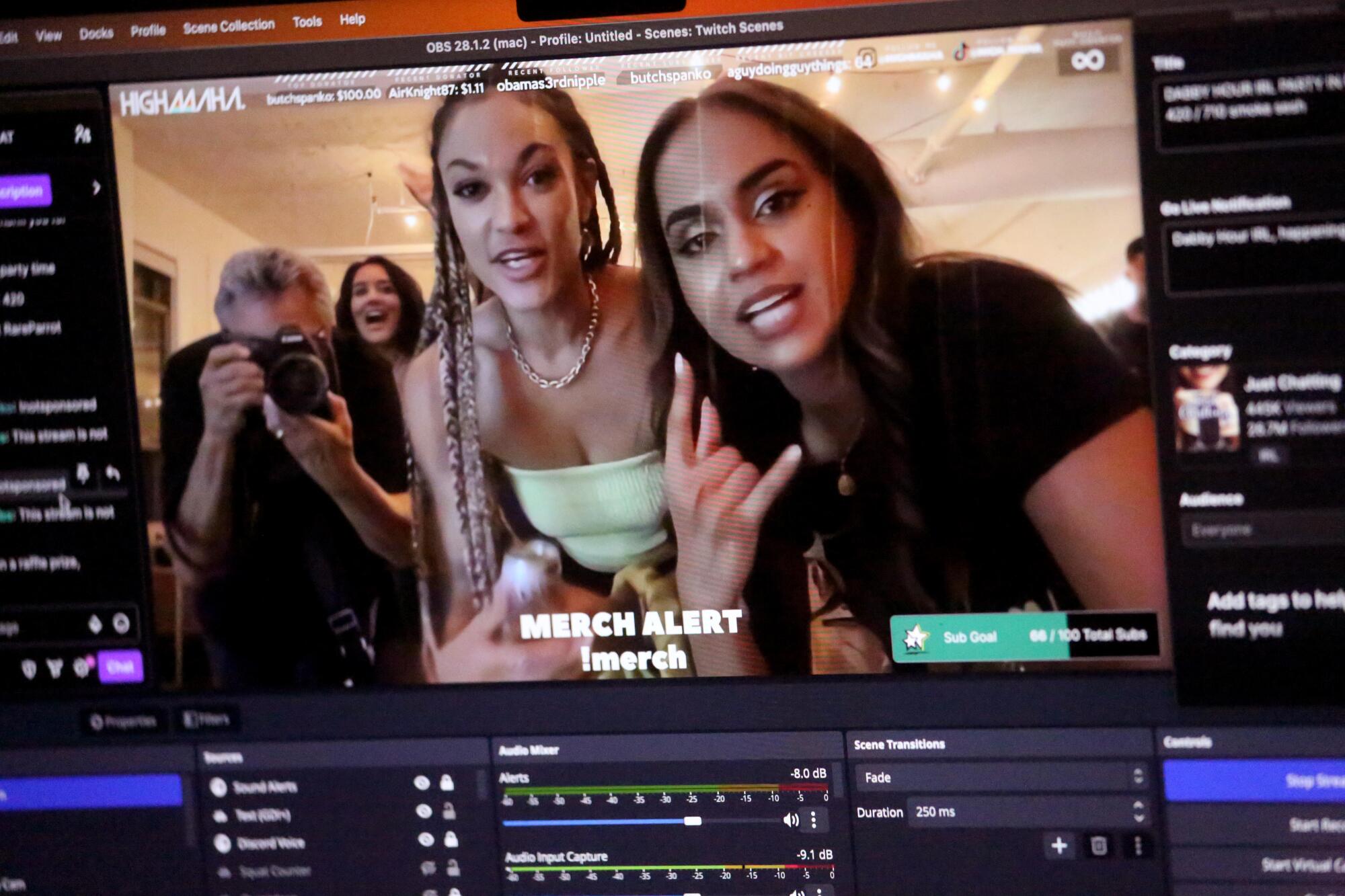
Switching on Twitch
Haq says reclaiming cannabis as part of her culture is part of what motivated her move into livestreaming. “It’s long been part of daily rituals and traditions [in parts of Asia],” she says. “But thanks to 300 years of British rule, it’s taboo. So this is a way to connect with my culture in a way I was never exposed to. My mom was such a goody-two-shoes.”
Haq’s mom, who also is at her downtown L.A. celebration — the first cannabis event she’d ever attended — says she’s not surprised at what her daughter has accomplished. “She earned it through her perseverance, her effort, her innovation, her determination,” says Tanveer Ali. “She was born to be a leader. She was meant to be a teacher.”
She also says that her daughter’s trailblazing path into a new field reminded her of her own career arc. “For me, it was history repeating itself,” Ali says. “When I first wanted to study stem cells, it was taboo in those days, and I was in my 20s. And I told my mom, who was a scientist, and she said, ‘The sky’s the limit!’” (Ali also pops into her daughter’s livestreams on occasion.)
The biggest motivation, Haq says, came last summer after she was unexpectedly laid off from what she’d expected to be a long-term, full-time job. “I felt like it was time to get myself out there as a brand,” she says.
Therefore, she and her husband, Ben Condron (a freelance cannabis compliance consultant who is also instrumental in making the livestream happen without a hitch), decided on Amazon’s Twitch platform, originally popularized by gamers, because it has a track record of being more cannabis-friendly (or at least cannabis-tolerant) than some of the popular social media sites.
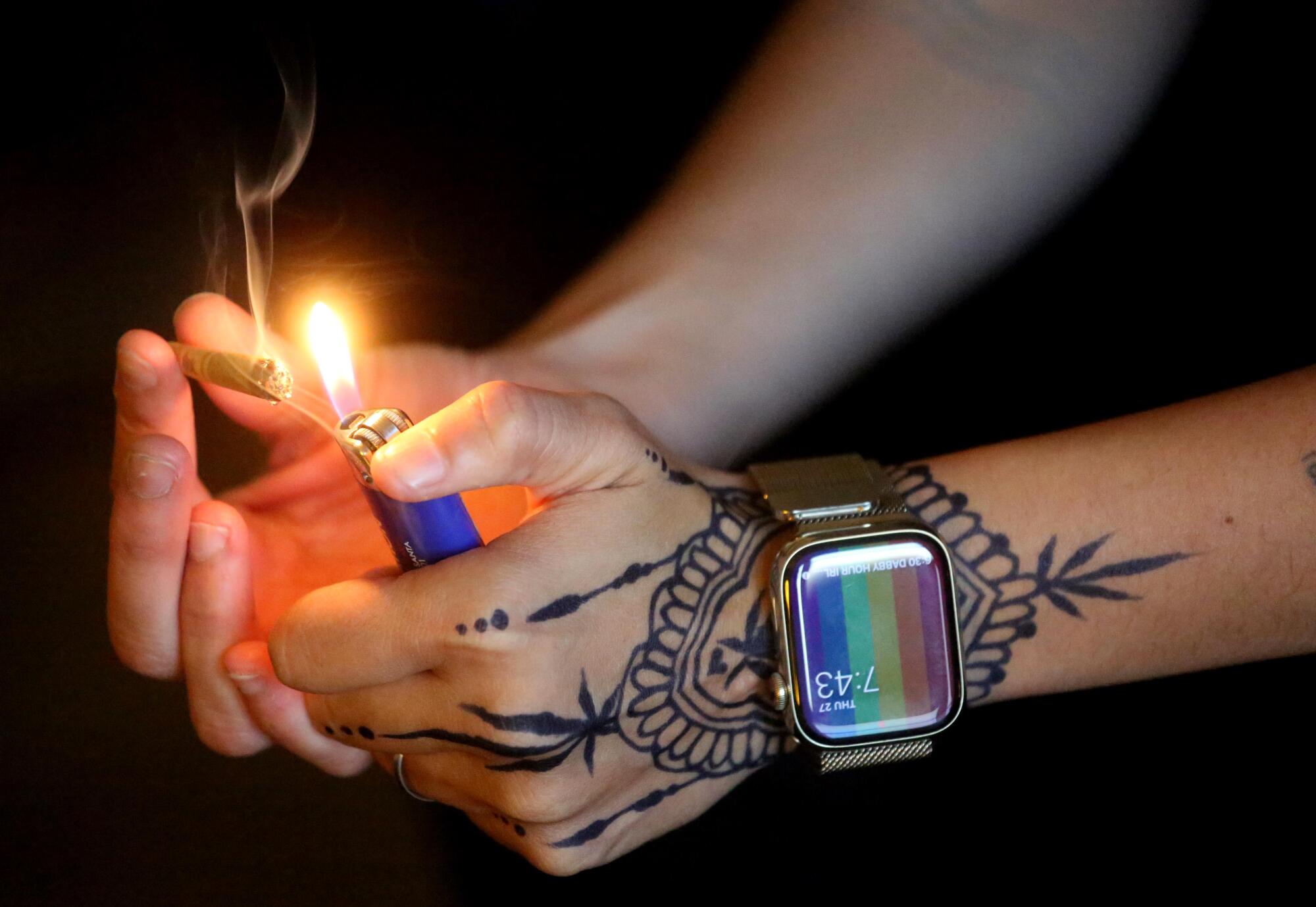
Haq and Condron stream from the living room of their Tarzana home with a mostly disinterested cat named Pablo lurking in the background. Haq treats Twitch as a kind of sounding-board roundtable discussion meets high-tech sesh where she can interact with like-minded souls from across the globe. (She has viewers from countries including the U.K., Sweden, India, Pakistan, Somalia and, on occasion, Saudi Arabia.)
The couple discuss all things cannabis with each other — and the occasional guest — while viewers type their comments into the livestream’s chat. More often than not, these folks eventually find themselves locked in Haq’s orbit, feeling the gravitational pull of her ebullience and authenticity, impressed by her near-encyclopedic knowledge of the SoCal cannabis scene and her enthusiastic deployment of a dab rig.
While some of the most popular Twitch streamers can make serious money on the platform (thanks to a cut of ad revenue and monthly subscriptions), Haq is far from one of them. With 1,200 followers and 65 subscribers, she says the most she’s earned in a month is around $200.
Opening a cannabis dispensary with a social equity license in Los Angeles takes endurance. Here are resilient owners who fought hard to run pot shops.
However, a funny thing happened along the way, she says. Thanks to a younger-skewing demographic (according to Twitch, in 2022 more than 70% of its viewers were between the ages of 18 and 34), Haq, who considers herself a zillennial (born in 1994, she’s on the younger cusp of the millennial generation), found she had the ear and attention of Generation Z, who, born after 1996, came of legal cannabis-consuming age in 2018, just as adult-use cannabis sales began in California.
“I’m turning out to be a resource for young people,” Haq says. “I never sought it out, but it makes sense. In the dispensaries, the budtenders are going to be young because that’s an entry-level job, and the Zoomers have more intentional purchasing around what they’re buying. Millennials don’t want to ask too many questions.”
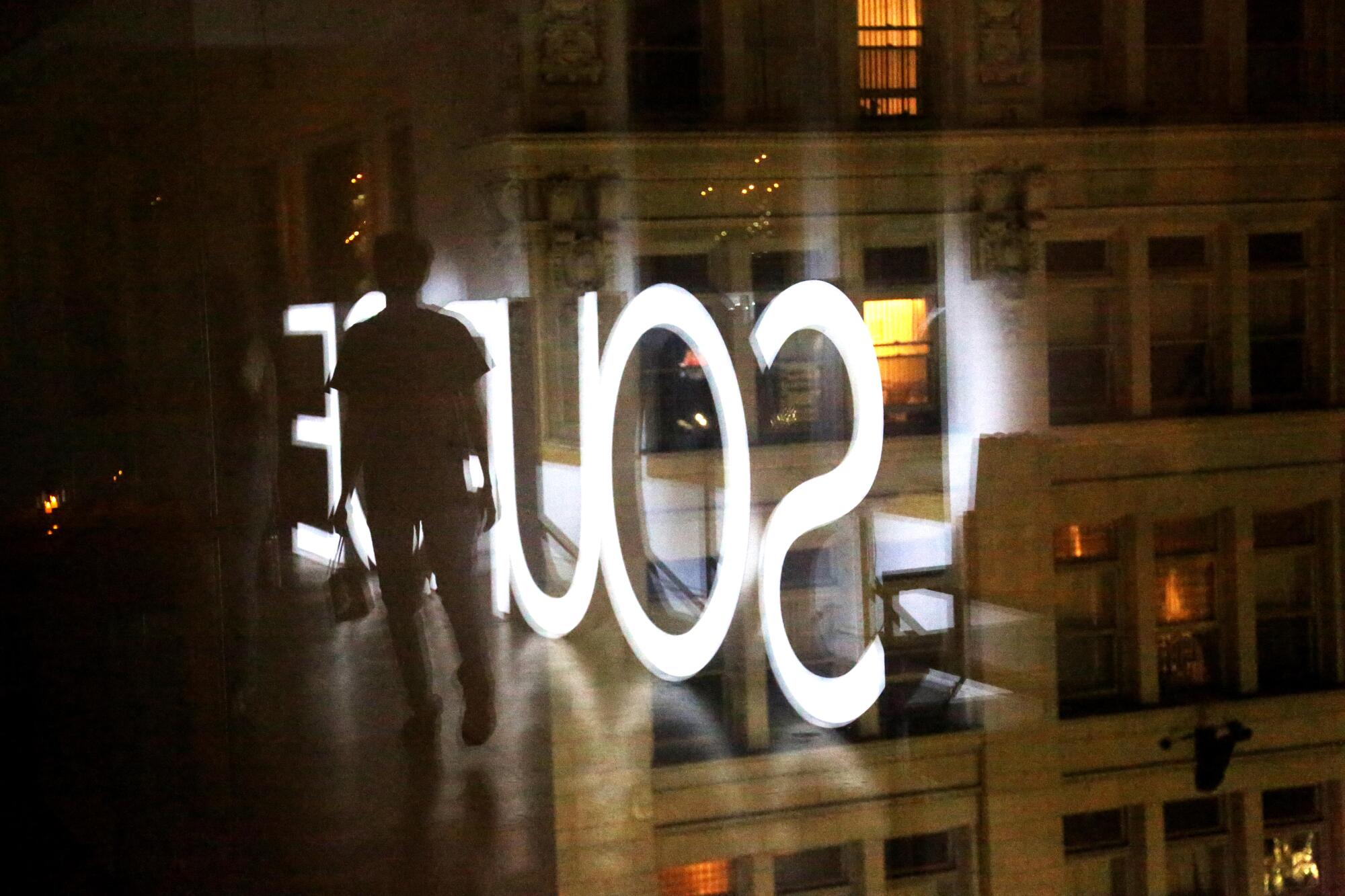
Alex Kardos, who’s in the process of building a cannabis consumption lounge in West Hollywood, thinks Haq’s emergence as a Gen Z whisperer can only bode well for the future of the local cannabis scene. “The 20-somethings are bringing a lot of great energy — a jolt of energy,” he says, “to an industry that really needs it.”
Somehow the great SoCal cannabis connector seems to have — without even trying — plugged the weed community into a whole new generation that consumes cannabis and information differently. And she did it being herself, writing her own story and building her own brand. What is her goal now that her first baby — Cannaclub — is out there in the world and her second one — the HighMaha channel on Twitch — has toddled past the one-year mark?
She actually has two goals. “I want my stream to be a trusted source for cannabis product recommendations and news,” she says, adding that she wants to continue building what she calls a “new, open-ended, leveled-up community” online where both Cannaclub alumni and people who look like her can socialize in a safe and supportive online environment.
Which brings us back to that smoke- and vapor-filled party on the 10th floor of the nondescript downtown office building. Of the 50-plus people gathered together blowing bongs, ripping dabs and downing edibles, at least three quarters are female, a good third are people of color and a bare handful look like they’ve crossed into their 30s.
Given the older, whiter male demographic’s longtime control of the SoCal cannabis conversation, it’s a noticeable change. It’s also proof that, regardless of what Haq has yet to accomplish online, she’s already getting it done offline — one orbiting, plugged-in pot person at a time.
More to Read
Sign up for The Wild
We’ll help you find the best places to hike, bike and run, as well as the perfect silent spots for meditation and yoga.
You may occasionally receive promotional content from the Los Angeles Times.


